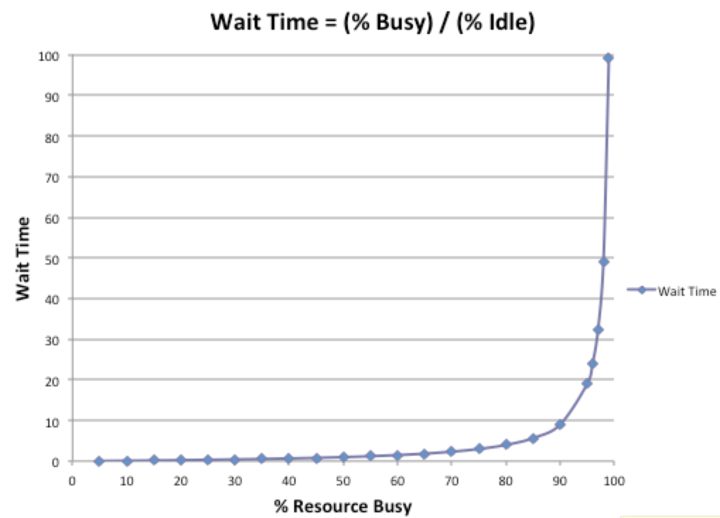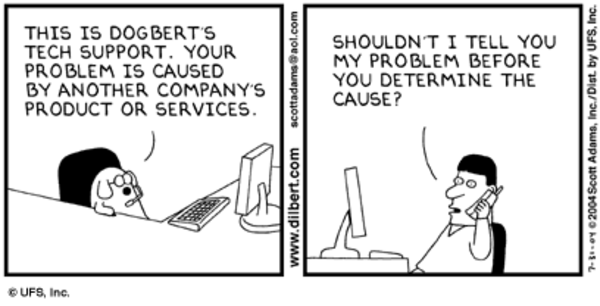The most important web project management skill: the ability to unblock others
By: Peter Keung | May 31, 2018 | Business solutions and Productivity tools
As a project manager on a web project, you have to be the hub for editors, marketers, developers, designers, IT staff, clients, and a plethora of other stakeholders as the team works together to plan, build, and launch the website or application. While managing the people, scope, timeline, and budget, you need to find the most efficient way for everybody to get things done. The best way to achieve this is to make unblocking others your primary responsibility.
The best project manager I've ever worked with had limited technical knowledge, but she did everything she could to understand the problem, find the right person to help, and then follow up until the problem was solved. She was a connector who was able to ask the right questions to surface issues as early as possible, largely trust the team whenever concerns were brought up, and escalated to the right people, always with timelines in mind.
This meant that each team member didn't have to keep a running list of open issues, and could focus on the task at hand. Her limited technical knowledge was a positive at times, because it kept team members empowered to solve their own issues where possible. She would know who in IT to get on the line to solve an access issue; she would set the schedule for content deliverables from marketing and get early commitments from them; and she would adjust expectations and put mitigation efforts into place the moment a milestone was in jeopardy.
Minimizing wait time
Consider the following graph from the DevOps book The Phoenix Project.
The story goes as follows:
"Bill and team realize that their “simple 30 minute task” actually required seven handoffs [...] Assuming that all work centers were 90% busy, the graph shows us that the average wait time at each work center is nine hours — and because the work had to go through seven work centers, the total wait time is seven times that: 63 hours.
In other words, the total “% of value added time” (sometimes known as “touch time”) was only 0.16% of the total lead time (30 minutes divided by 63 hours). That means for 99.8% of our total lead time, the work was simply sitting in queue, waiting to be worked on (e.g., in a ticketing system, in an email, etc.)."
The original lesson from this story is about minimizing work-in-process and identifying bottlenecks. As a project manager, how can you optimize the flow of work so that questions aren't sitting unanswered, specs aren't missing, and team members know who to talk to when they're ready to work on a task? You can focus on being the facilitator to get the questions answered, to fill in the specs, and to gather a list of people to talk to, in order of priority, on any issue.
What about authority?
When it comes to project management, we often talk of authority, or how much power a project manager has to make people listen to them. One of the best types of authority is referent authority. Referent authority can be described as "possessing the necessary charisma to enable team members to share their ideas, feelings and concerns." What better way to motivate team members to approach you than to give them the confidence that you will do everything you can to unblock them?
Of course, as in the example above, if you cannot get the relevant IT person on a call in a timely manner, then your role as an unblocker becomes less effective. Thus, expert, positional, and other types of authority can certainly help the case.
What about technical knowledge?
At Mugo, we pride ourselves on being technically savvy throughout the team. This means that no matter who you talk to on our team, they will be able to have at least a basic technical understanding of your problem and are often able to help you directly. At the very least, we'll own the problem and point you in the right direction. That's why we all take turns playing project manager across projects, and dealing directly with clients.
Of course, having technical knowledge helps when unblocking others. This way, you can make useful technical suggestions. But even if you're someone with technical knowledge, it's good to remember that your primary job is to unblock others, and keep the project moving as efficiently as possible. If you take on too many technical problems yourself, then you become the bottleneck!
Prioritizing project management tasks
Whether or not you are a project manager, you can start becoming a better unblocker by better prioritizing your own tasks. Every day, you likely have a long list of tasks that can be categorized in roughly two ways: work that will unblock someone else, and work that won't unblock someone else. Try to prioritize replying to questions from a client about specs, or helping a team member test a design prototype that's about to be handed off to a developer.
Don't be the one who works heads down on a task up until the due date, then proudly delivers what turns out to be a half-finished, unreviewed piece of work that is ultimately not ready for the next person. When planning a particular task, try to front-load the deliverables and answers that depend on other people as much as possible.
Now go start unblocking! Ernesto has been waiting for a test account that you had to request, which has been approved. Log in and forward him the details. Lisa needs you to clarify a spec change with the client. Don't put off a 15-minute call with the client until tomorrow, so that you can help Lisa get going on an alternative implementation approach.
P.S. Thanks to Ben and Lisa for helping to unblock the publication of this post!







